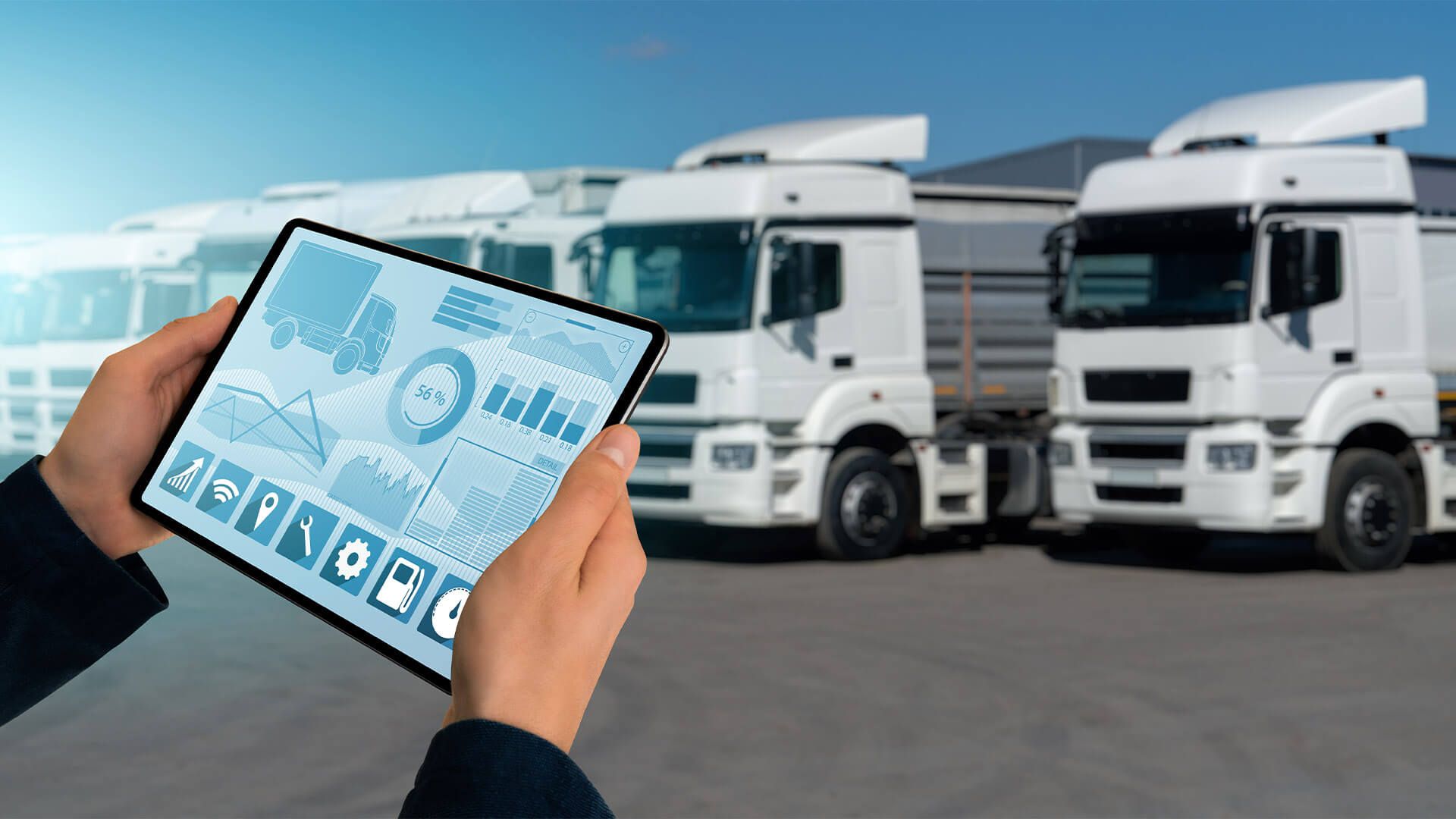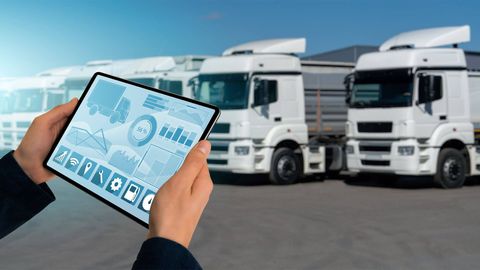Explore Fleet Management Systems: A Complete Guide to Smarter Logistics
Fleet management systems are digital platforms designed to monitor, coordinate, and optimize vehicle operations across industries such as transportation, logistics, construction, and public services. These systems integrate technologies like GPS tracking, telematics, and data analytics to help businesses manage fleets more efficiently.
In simple terms, fleet management ensures that every vehicle in a company’s network operates safely, cost-effectively, and in compliance with regulations. Whether it’s a small group of delivery vans or a nationwide logistics network, these systems serve as the central nervous system that connects vehicles, drivers, routes, and data.
Fleet management exists to simplify complex operations such as route planning, maintenance scheduling, driver monitoring, and fuel tracking that would otherwise be time-consuming and error-prone if handled manually.
Why Fleet Management Systems Matter Today
The rise of e-commerce, global supply chains, and real-time delivery expectations has made efficient fleet operations critical. Fleet management systems help organizations:
-
Enhance efficiency: Real-time route optimization and tracking reduce delays and fuel waste.
-
Improve safety: Continuous driver monitoring promotes safe driving behavior and minimizes accidents.
-
Ensure compliance: Automated logs and reports make it easier to comply with transport laws and regulations.
-
Reduce environmental impact: Smart routing and vehicle diagnostics help minimize fuel consumption and emissions.
-
Support data-driven decisions: Predictive analytics and reporting provide insights for better planning and cost management.
These systems are vital for logistics companies, delivery services, public transportation authorities, and even construction firms managing heavy equipment. They also help governments and private organizations improve road safety and environmental sustainability.
A 2024 report by MarketsandMarkets projected that the global fleet management market will surpass USD 55 billion by 2028, driven by increased adoption of Internet of Things (IoT) technologies and telematics.
Recent Updates and Trends in Fleet Management
The fleet management industry has evolved rapidly over the past few years. Several trends have reshaped how fleets are monitored and optimized:
-
AI-powered Analytics (2024): Artificial intelligence now enables predictive maintenance and driver behavior analysis, reducing downtime and accident rates.
-
Electric Vehicle (EV) Integration (2024–2025): More fleets are adopting EVs to meet emission targets and lower fuel dependency. Fleet management software now includes EV battery monitoring and charging infrastructure management.
-
IoT and Telematics Expansion: Real-time IoT devices track temperature, load weight, tire pressure, and more, offering deeper operational visibility.
-
5G Connectivity: Faster data transmission allows for instant vehicle communication and accurate location updates.
-
Cloud-Based Solutions: Web-based fleet platforms provide scalability, accessibility, and remote management.
In 2025, many global companies have shifted toward smart logistics ecosystems, integrating fleet management with warehouse automation and supply chain analytics to create end-to-end operational transparency.
Regulations and Policies Affecting Fleet Management
Fleet management systems are closely linked with national and international transportation regulations. These policies ensure road safety, emission control, and data security.
United States:
The Federal Motor Carrier Safety Administration (FMCSA) mandates electronic logging devices (ELDs) for commercial drivers to record driving hours and ensure compliance with Hours of Service (HOS) rules.
European Union:
The EU Mobility Package (2020–2024) enforces digital tachographs and rest-time rules to promote fair working conditions and road safety. Fleet systems in Europe must comply with these standards.
India:
The Automotive Industry Standard (AIS-140) rule requires GPS tracking and emergency buttons in all commercial vehicles. The system supports real-time vehicle monitoring for safety and compliance.
United Kingdom:
The Driver and Vehicle Standards Agency (DVSA) regulates tachograph data, emissions, and vehicle maintenance standards, ensuring fleet operators maintain environmental and safety compliance.
Environmental Policies:
Global emission targets under frameworks like the Paris Agreement are pushing companies to adopt eco-friendly fleet technologies, including electric or hybrid vehicles and fuel optimization tools.
Tools, Platforms, and Resources
A range of tools and software platforms help businesses manage fleets more efficiently. Below are some leading options and helpful resources:
| Tool / Platform | Core Feature | Special Use |
|---|---|---|
| Geotab | GPS tracking, telematics, driver safety | Scalable for large fleets |
| Samsara | Real-time data, fuel monitoring | Integration with logistics analytics |
| Verizon Connect | Route optimization, compliance | Ideal for delivery operations |
| Fleet Complete | Asset tracking, vehicle diagnostics | Multi-vehicle network monitoring |
| Teletrac Navman | Maintenance alerts, fuel usage reports | Compliance-ready for global fleets |
| KeepTruckin (Motive) | Electronic logs, AI dashcams | FMCSA compliance for U.S. fleets |
Other useful resources include:
-
Government Fleet Management Portals: Provide compliance updates and driver certification tools.
-
Online Calculators: Fuel efficiency and CO₂ emission calculators for sustainability planning.
-
Fleet Tracking Apps: Mobile solutions for dispatchers and drivers.
-
Knowledge Hubs: Blogs and whitepapers from technology providers like Trimble, Geotab, and Verizon Connect.
FAQs
What is a fleet management system used for?
A fleet management system helps monitor and manage vehicle operations, including tracking, maintenance, driver safety, fuel usage, and compliance with regulations.
Are fleet management systems only for large companies?
No. Small and medium-sized businesses also use simplified or cloud-based fleet platforms to track deliveries, manage drivers, and monitor performance.
How does GPS tracking improve logistics?
GPS tracking provides real-time visibility, enabling route optimization, faster deliveries, and quick response to vehicle issues or delays.
What technologies are essential for modern fleet management?
Key technologies include GPS, IoT sensors, AI analytics, telematics devices, and 5G connectivity for instant communication and data transfer.
How are fleet management systems adapting to electric vehicles?
Modern systems now track EV battery status, charging locations, and range optimization, helping fleets transition to sustainable mobility solutions.
Data Overview: Key Benefits of Fleet Management
| Aspect | Traditional Fleet | With Management System |
|---|---|---|
| Tracking | Manual logs | Real-time GPS visibility |
| Fuel Usage | High and variable | Optimized with analytics |
| Maintenance | Reactive | Predictive and automated |
| Compliance | Paper-based | Digital and error-free |
| Efficiency | Limited data | Data-driven insights |
Fleet management systems not only modernize operations but also improve accountability, reduce downtime, and strengthen compliance monitoring — making them essential for future-ready logistics networks.
Conclusion
Fleet management systems represent a major shift in how logistics, transportation, and mobility are managed globally. With growing demand for faster, safer, and greener operations, these systems have become indispensable for organizations of all sizes.
The integration of AI, IoT, and cloud-based technologies ensures that fleet operations are more efficient, transparent, and adaptable. As governments tighten safety and environmental regulations, fleet management will continue to evolve focusing on sustainability, automation, and data-driven decision-making.
Exploring these systems today offers valuable insight into the future of logistics one where every movement is optimized, every vehicle is connected, and every journey contributes to smarter, safer, and more sustainable transport.







